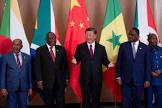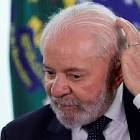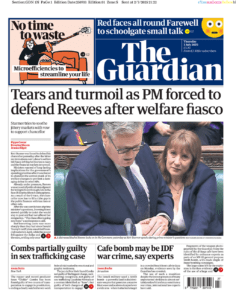- Upset coffee - 25th February 2026
- Not acting the part - 24th February 2026
- Death wish - 23rd February 2026

During 23 years with the BBC, and a 41 year journalistic career (when he was trained to use clear and simple language, avoiding jargon), for our Editor, Welshman Phil Parry reporting unlikely political alliances or coalitions, many of which took place in the Welsh Government [WG] as well as in the Welsh Parliament/Senedd Cymru [WP/SC], became a mainstay of his journalism, and now this is put centre stage by Brazil hosting a group in a few days, where many members are pariah states.
I wouldn’t make a great diplomat.

I tend to call a spade a spade, and highlight inconsistencies or questionable facts about people or individuals, which they appear not to like.
The abuse I receive online is incredible.
Diplomats on the other hand are sometimes (although not always) LIKED, and they either avoid mentioning unfortunate facts altogether, or say them in such a nice way that people seem to agree with them.
Perhaps I should take a leaf out of their book.

I say this because Brazilian diplomats are working hard to undo damage (both perceived and real) on the world stage, before they host a BRICS conference on Sunday and Monday.
BRICS is an intergovernmental organisation comprising ten countries – Brazil, Russia, India, China, South Africa, Egypt, Ethiopia, Indonesia, Iran and the United Arab Emirates.
The idea of a BRICS-like group can be traced back to Russian foreign minister Yevgeny Primakov, and to the two forums RIC (Russia, India, China) and IBSA (India, Brazil, South Africa).

Indonesia officially joined as a member state in early 2025, becoming the first Southeast Asian member.
The acronym BRICS+ (in its expanded form BRICS Plus) has been informally used to reflect new membership since 2024.


However the alliance is curious because it includes countries other states condemn, and the whole thing (bizarrely) puts me in mind of what we have seen at a much smaller level in Welsh politics, because there have also been odd alliances as well as friendships, in that context which have been massively criticised.
Let’s look, for example, at Brazil’s friendliness towards the autocratic Iran that has neither a free media (which I strongly believe in), nor a functioning democracy, and which the United States of America (USA) bombed because most intelligence suggested the people in charge were about to ‘mate’ a nuclear weapon with a method of delivery (a missile), while the country is the sworn enemy of Israel.
On June 22, hours after the USA struck Iranian nuclear sites with huge bunker-buster bombs, Brazil’s foreign ministry put out a statement which the diplomats have been struggling to make ‘nice’.

It said that Brazil’s government “strongly condemns” the American attack, and that the strikes were a “violation of Iran’s sovereignty and international law”.
This strength of language put Brazil at odds with all other Western democracies, which either supported the strikes or merely expressed concern.
Brazil’s friendship with Iran is likely to continue on July 6 and 7 when the BRICS holds its annual summit in Rio de Janeiro.
Iran, which became a member in 2024, is expected to send a delegation to the conference, and it will be chaired by Brazil’s president, Luiz Inácio Lula da Silva, known as Lula.

Originally being a member had offered Brazil a platform from which to exert global influence, but now it makes the country look increasingly hostile to the West.
“The more China transforms the BRICS into an instrument of its foreign policy, and the more Russia uses the BRICS to legitimise its war in Ukraine, the harder it will be for Brazil to keep saying it is non-aligned”, declares Matias Spektor of the Fundação Getulio Vargas, a university in São Paulo.
Brazil’s diplomats are trying to get around the problem by focusing the summit on innocuous themes: co-operation on vaccines and health care; the green-energy transition; and maintaining most-favoured nation status as the basis for international trade, in which countries treat all members of the World Trade Organisation (WTO) equally.

They want to avoid chat on a subject America’s president, Donald Trump, particularly hates: a BRICS-led effort to settle trade in local currencies rather than the dollar.
Brazil’s diplomats would probably prefer it if the Iranians stayed quiet, too. “We are in a moment of damage containment more than a moment of creating new instruments”, says a senior one.

I must remember not to apply for a job like his.
‘Damage containment’ is not my forté!
Some of the political stories Phil has covered over the years, as he was gripped by the rare neurological condition Hereditary Spastic Paraplegia (HSP), have been released in a major book ‘A GOOD STORY’. Order it now!
‘Best of enemies part two’ follows soon, where Phil explores how a new villain is now appearing in films – Artificial Intelligence (AI)…
 Tomorrow – how the tears of under-pressure Chancellor Rachel Reeves, following the welfare ‘reforms’ bill fiasco, and protests by disability groups, show the central role of Wales in the drama.
Tomorrow – how the tears of under-pressure Chancellor Rachel Reeves, following the welfare ‘reforms’ bill fiasco, and protests by disability groups, show the central role of Wales in the drama.









